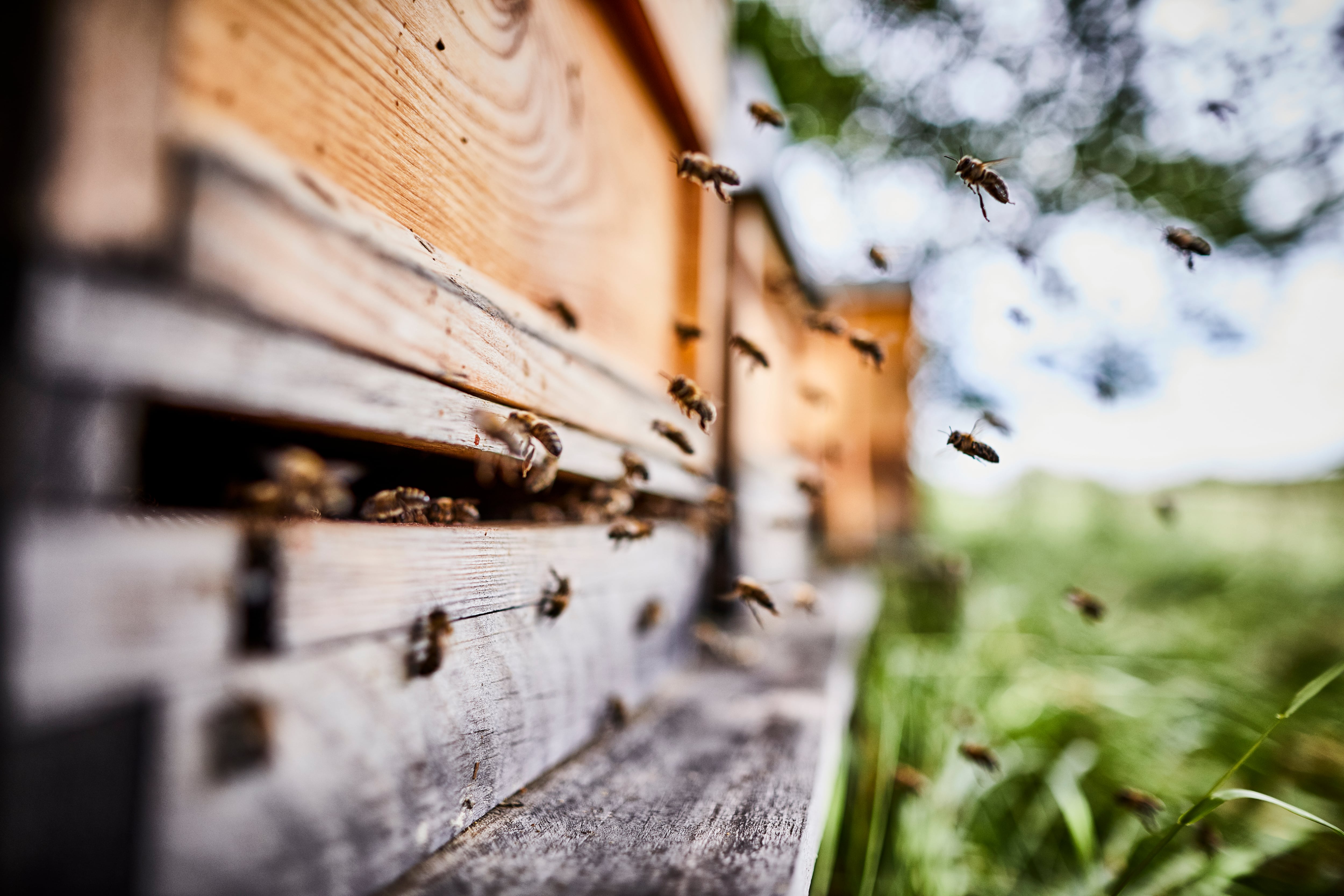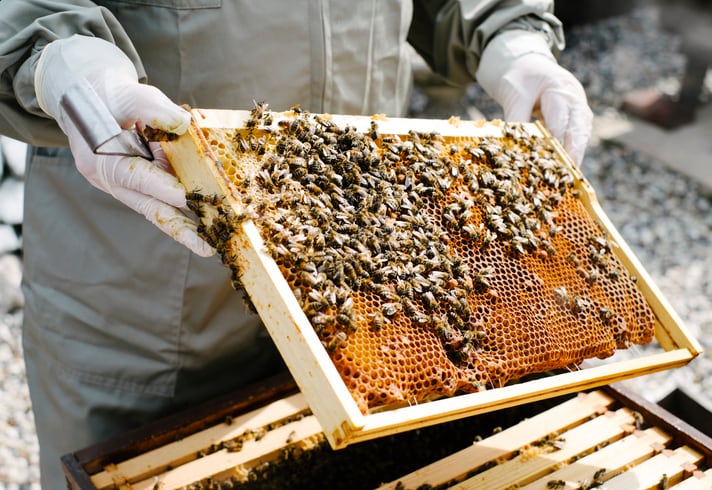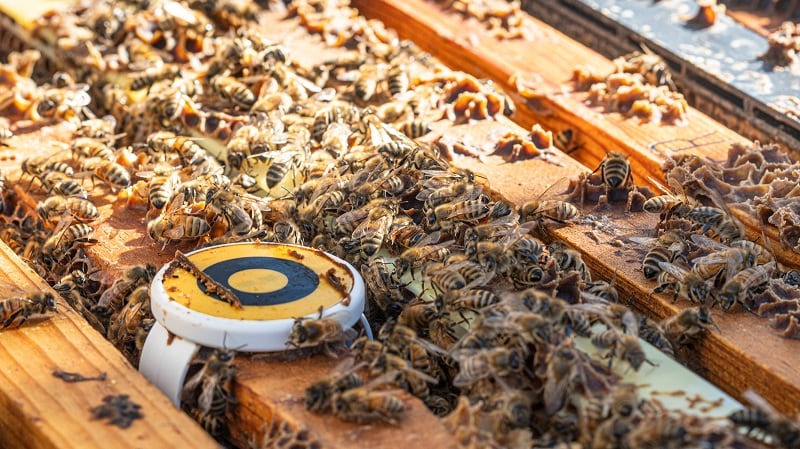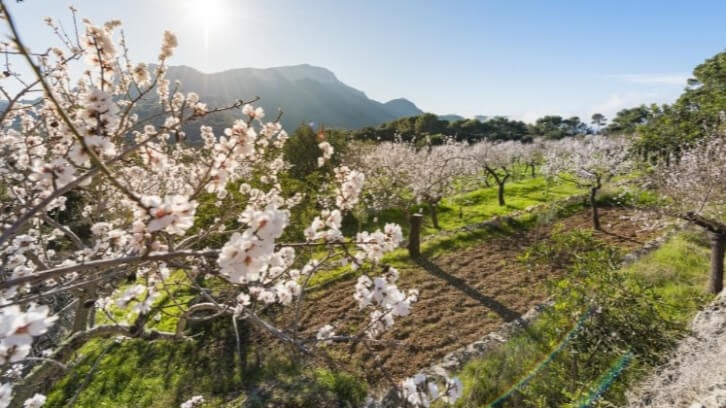The winter of 2019 was a low point for California’s almond growers. In January, with the almond harvest less than a month away, beekeepers began reporting an epidemic of bee deaths with up 50% lost in many hives. Farmers feared it posed a fundamental threat to the harvest which relies on millions of bees for pollination.
Yet in the end, while the bee shortage was navigated, the bad news was just beginning. The word about almonds potentially damaging environmental impact was out, with headlines likening the crop to “sending bees to war”. Alarm over almonds’ impact on water resources was also reignited with the crop branded a “horticultural vampire” for its supposed role in California’s droughts. Sales began to fall.
In the years since, almond growers have worked hard to push back against its costly image and Ofi, the ingredients subsidiary of agri-food company Olam and one of the world’s largest growers of almonds, is first among them.
In its first sustainability report on nut production, CEO Ashok Krishen highlights Ofi’s successes that includes earning America’s first Rainforest Alliance certification for its California orchards in June off the back of its work to implement better pollinator management techniques, boost water efficiency, and increase orchard carbon capture activities.
As the winter of 2019 proved among others, bees are suffering at the hands of agriculture with hives damaged every year by the volume of fungicides and pesticides sprayed on crops. It is a common pattern around the world with one-third of bee colonies disappearing every year and threatening food supplies as a result. Honeybees pollinate around $15bn worth of crops in the US each year, according to the US Department of Agriculture.
Saving honeybees through high-tech hives
Since 2022, Ofi has partnered with Beewise, an Israeli agtech startup using AI, sensors and robotics to try and save honeybees through high-tech hives. Ofi now has over 3600 high-tech ‘BeeHomes’ on its Californian orchards that allow it to operate remote and automated beekeeping at scale. The new hives provide control temperature, nutrients, and antibiotics, and include a chemical-free, heat treatment to fight off mites.
The invention has helped to increase honey production yields and reduce harvesting time, with Beewise claiming the hives reduce bee mortality by 80%. Ofi claims its new hives saved over 650,000 bees in 2023 alone.
“Over the past three years, we’ve expanded our work with Ofi from a small pilot to large-scale deployment for thousands of acres,” says Saar Safra, CEO of Beewise. “In the process, Ofi saved millions of bees using our technology.”
Slower progress elsewhere?
On other measures, however, Ofi’s progress is slightly slower. For example, while the company is aiming to protect and expand its permanent pollinator habitats to 40% of fallow orchard areas by 2030, this currently stands at just 2%. This will clearly need to speed up if it’s to hit its target in time.
The other big threat to Ofi’s almond supply is water. Producers have pushed back against critics who argue almonds use as much as 10% of the California’s total water supply, pointing out that while almonds cover 21% of irrigated agricultural land in California, they only account for 14% of agricultural water use.
Yet regardless, almonds are facing a water crisis. California produces 80% of the world’s almonds, with Australia making up much of the rest, two areas prone to severe and chronic drought meaning water management is a priority.
In response, Ofi has installed “state-of-the-art” irrigation systems in its Australian orchards to optimize water use and get ‘more crop per drop’. This focuses on ensuring all trees get the same amount of water through a new ‘Irrigation Decision Support Tool’ that enables highly accurate irrigation based on real-time data from monitoring equipment. “We’re confident this will help save more precious water while we deliver year-round fresh almonds to customers worldwide,” Ofi says.
Adressing water concerns
While high-tech irrigation systems are all well and good, more drastic measures might be necessary. Researchers with the Public Policy Institute of California estimate that addressing the groundwater deficit in California’s largest agricultural region, the San Joaquin Valley, could require at least half a million acres of farmland to be taken out of production.
In almonds, that may already be starting to happen. After the number of almond farms in California doubled in the past decade to more than 1.3m acres in 2022 according to federal data, the industry has now seemingly entered a slump with prices dropping from nearly $4 a pound of premium almonds to about $2 or less. As a result, growers have begun to tear out orchards and plant other crops, according to the LA Times.
That would be bad news for Ofi’s bottom line. But given the demands of these thirsty trees, it could be a small win for California’s water supply.




